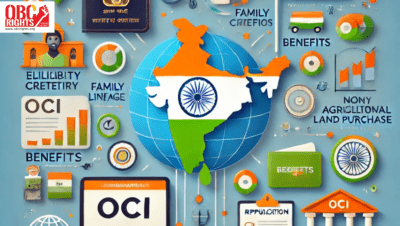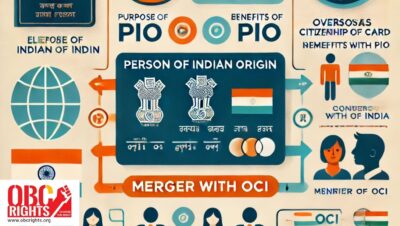Overseas Citizenship of India (OCI) is a status offered by the Government of India to foreign nationals of Indian origin, allowing them various privileges and benefits while living abroad or visiting India. It’s important to note that OCI is not equivalent to Indian citizenship but provides several advantages compared to a tourist visa.
Key Aspects of OCI:
Eligibility:
- A person who was eligible to become a citizen of India on January 26, 1950, or belonged to a territory that became part of India after August 15, 1947.
- Children or grandchildren of such persons.
- Spouses of OCI cardholders or Indian citizens (subject to specific conditions).
Benefits:
- Multiple-entry, multi-purpose lifelong visa to visit India.
- Exemption from registering with local authorities for stays in India.
- Equal treatment with Non-Resident Indians (NRIs) concerning financial, economic, and educational fields.
- Eligibility for admission to institutions under NRI quotas.
Restrictions:
- OCI holders cannot vote, contest elections, hold constitutional office, or purchase agricultural land in India.
Application Process:
- Online application via the Indian government’s portal.
- submission of documents like proof of Indian origin, passport, and photographs.
Conversion of PIO to OCI:
- Persons of Indian Origin (PIO) cardholders can convert their PIO cards to OCI cards for added benefits.



